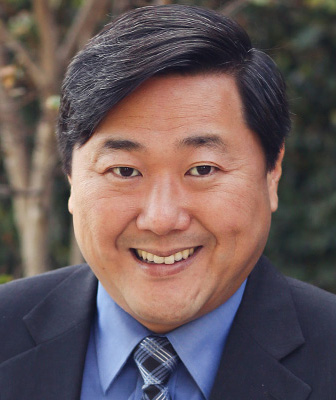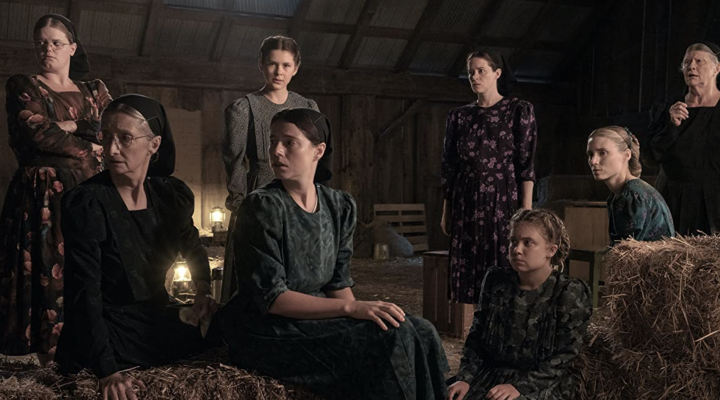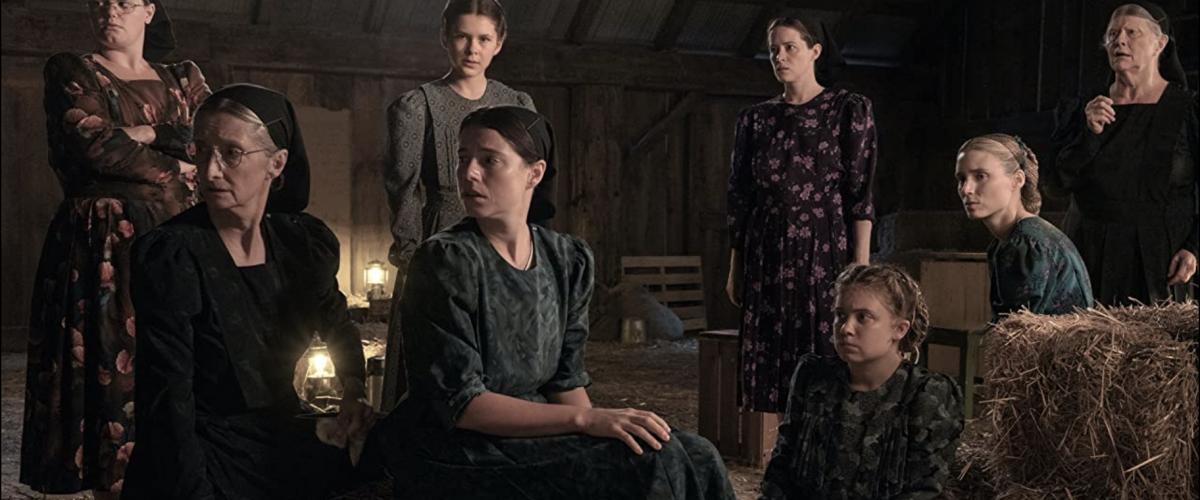As much as conservative evangelicals love to hate Hollywood, sometimes Hollywood plays the role of the prophet, exposing the brutal power dynamics of complementarianism’s “male headship.”
Such is the case with Brett McCracken, senior editor and director of communications at The Gospel Coalition. His article about how Hollywood makes Christianity the villain not only highlights his complementarian worldview, it has generated intense reactions from critics — namely, women — of his narrow theology.
His reviews bring together warnings about “woke” theology and the influence of “liberalism” in movies — longstanding themes in conservative evangelicalism — while praising a few movies he believes get it right.
His review of Women Talking indeed has women talking. And they’re not happy with what he wrote.

Brett McCracken
This is a movie based on a true story about women who are drugged and raped by men they trust. McCracken praises the film for depicting the women as continuing to hold to their faith despite their questions. And he offers his sympathy for the women. But he believes Women Talking is “an advocacy piece — celebrating the virtues of feminism, collective action, and liberation for women and LGBT+ people in a cisgender, patriarchal world.”
He writes: “Women Talking similarly concludes with imagery of leaving the old and beginning anew, with previously silenced women now having the power to speak into being whatever reality they desire.”
And what is this female desire he is so concerned about? It is the abused women liberating themselves, asking who they are, and moving forward into a religion that grows from their old religion but is “focused on love.”
Women talking
A number of women have responded to McCracken’s complaints about Women Talking.
“These films are marginal to the amount of damage done in the name of Jesus by Christian institutions,” wrote Rebekah Mui, editor of The Kingdom Outpost. “As a Christian in the 21st century, the only posture that is remotely justifiable is one of humility, recognition of wrongs, and willingness to change. Not arrogance.”
Beth Moore added: “Brett, I haven’t seen any of these films but I’ve read the book Women Talking and with a lump in my throat through much of it. I can’t emphasize enough how much/long it’s taken for women to finally start talking. Christ-like men surely only want abuse exposed and rooted out, too.”
Moore continued: “At this point I’ve lost count of how many women with heads full of gray hair in the throes of their 70s and 80s have whispered in my ear, ‘I’ve never told anyone this before but I was sexually abused as a child.’”
Moore has spent her entire life ministering to women in complementarian churches. If she has lost count of how many women have confided in her about their sexual abuse, then how can we trust these men, especially when they complain about how it makes them look when women speak up?
“It’s post-Christian advocacy for women to organize to keep themselves from getting raped?? Are you sure??”
Laura Robinson, a New Testament scholar, responded to McCracken: “Given that you acknowledge that Women Talking is based on a true story: Do you think that in a Christian society, that story would never have been told? Why would that be a more desirable outcome?”
Regarding McCracken’s accusation of Women Talking of being “post-Christian,” Robinson tweeted, “This is kinda creepy, Brett! It’s post-Christian advocacy for women to organize to keep themselves from getting raped?? Are you sure?? It seems like the argument is that Christian women escaping abuse in a religious setting isn’t a Christian story. It’s a post-Christian story.
“What part of the gospel would have only been preserved if the women had not escaped?”
Kristin Du Mez replied to Robinson: “I know certain conservatives like to opine about moralistic therapeutic deism, but can we also talk about moralistic apologetic deism? … Essentially when apologetics moves to the center of the faith, distracting from/displacing the core of the gospel w/tactics and strategies and a need to defend and define rather than living as disciples of Christ. So a movie (or book) is judged by how well it presents Christianity as a system rather than whether the work is true, whether it leads to empathy with those who suffer, w/hope for the lost, w/confession and restoration. (And by ‘how well’ I mean how positively, not how accurately.)”
Sexual ethics, supernaturalism and male leadership
McCracken calls the three movies he highlights the “perfect fables of our post-Christian age.” He opines: “They’re expressions of a generation that seeks to take from Christianity what’s useful and inoffensive while scrapping what’s seen as offensive (sexual ethics), outmoded (supernatural), or oppressive (male leadership).”
Notice how he assumes the offense of the gospel is sexual ethics about monogamous heterosexual marriage, creationist views of science, and male leadership. But nowhere in the Bible are these modern conservative evangelical litmus tests listed as legitimate stumbling blocks of the gospel.
“Nowhere in the Bible are these modern conservative evangelical litmus tests listed as legitimate stumbling blocks of the gospel.”
For McCracken, the most pressing concern is for Christian men to be seen as the superheroes rescuing the oppressed from injustice. “If Christianity is seen more as an oppressor than a liberator, after all, something else must play the part of liberator,” he fears. Because these women stand up for themselves against their oppressors, McCracken complains the liberator is “the empowered self.” If women can defend themselves, then complementarian men are no longer the heroes.
When villains turn against villains
One recent example of complementarian men attempting to play the role of the hero while responding to abuse against women has been sparked by a report from Kate Shellnutt about John MacArthur and his elders publicly disciplining a woman for her decision not to reconcile with her husband, who eventually was convicted of child molestation and abuse.

Hohn Cho
Hohn Cho, a lawyer and previously one of the four officers on the Grace Community Church elder board, told Shellnutt that when he approached MacArthur about making things right with the woman, MacArthur said to “forget it.” When Cho continued pushing for justice, he was told to resign. Since then, Grace Community Church has removed all Cho’s sermons and articles from it website.
But is Cho a hero? In this instance, he stood up for a woman. But where has he been for the past 20 years while MacArthur has used the gospel to sacralize racism, sexism and abuse? He was right there with MacArthur, promoting the power dynamics that hurt women.
Cho is now an outsider now in the world of patriarchy only because whoever has accumulated the most powerful patriarchy wins.
Patriarchy’s passion for exponential power
Kevin DeYoung defends patriarchy’s passion for power, saying: “Patriarchy is inevitable. … Where patriarchy is already absent, dysfunction and desperation have multiplied. That’s because patriarchy, rightly conceived, is not about the subjugation of women as much as it is about the subjugation of the male aggression and male irresponsibility that runs wild when women are forced to be in charge because the men are nowhere to be found. What school or church or city center or rural hamlet is better off when fathers no longer rule? Where communities of women and children can no longer depend upon men to protect and provide, the result is not freedom and independence. Fifty years of social science research confirms what common sense and natural law never forgot: as go the men, so goes the health of families and neighborhoods. The choice is not between patriarchy and enlightened democracy, but between patriarchy and anarchy.”
“DeYoung is saying the solution to patriarchy’s violence against women is an exponentially more powerful Christian supremacist patriarchy.”
In other words, DeYoung is saying the solution to patriarchy’s violence against women is an exponentially more powerful Christian supremacist patriarchy. And if women choose not to submit to him, then he believes there will be anarchy. So who are the complementarian patriarchs actually defending?
Patriarchy protecting itself
It’s notable that McCracken doesn’t write his review of Women Talking to defend women. Instead, he writes it to defend men being in charge of women. Robinson writes: “From Brett’s perspective, it *is* post Christian to expose a Christian rapist. … He agrees this is a true story, and he agrees the serial rapes depicted in the story are wrong, and he agrees that the women in the story all remain faithful. This is the thing he finds to be a problem: the women act to stop the violence.”
When McCracken, MacArthur, DeYoung and the TheoBros see violent men exerting power over women, they immediately defend themselves, while threatening us if we choose not to trust them. But they’ve demonstrated themselves to be untrustworthy by their dismissal of women who speak up for themselves and by the way they expel their own fellow patriarchs who suddenly have a moment of clarity about what they’ve done.
Robinson puts it this way: “If you read Women Talking and felt like it was talking about your faith community, I think it’s worth asking what about the hypocritical rug-sweeping child rapists made you say ‘OMG these are my boys.’ … I don’t believe for a second this is the review TGC would print if Women Talking was about any group other than Christians. But it’s hard to celebrate women fleeing *Christian* rapists. Because it’s different when we do it.”
Rick Pidcock is a 2004 graduate of Bob Jones University, with a Bachelor of Arts degree in Bible. He’s a freelance writer based in South Carolina and a former Clemons Fellow with BNG. He recently completed a Master of Arts degree in worship from Northern Seminary. He is a stay-at-home father of five children and produces music under the artist name Provoke Wonder. Follow his blog at www.rickpidcock.com.
Related articles:
John MacArthur is wrong about so much more than keeping women in abusive marriages | Opinion by Mark Wingfiele
Now Beth Moore is taking on patriarchy in the church
The weakness of complementarian theology on display in Duggar trial | Opinion by Rick Pidcock
Has God really ‘staked everything on men’? | Analysis by Mark Wingfield


